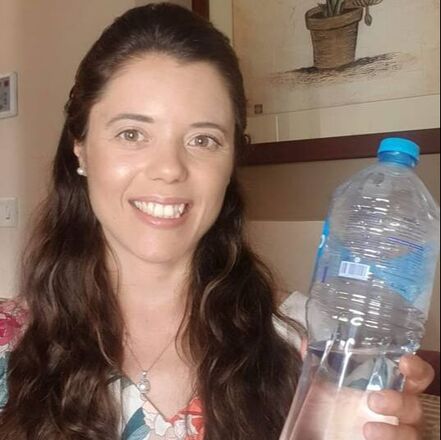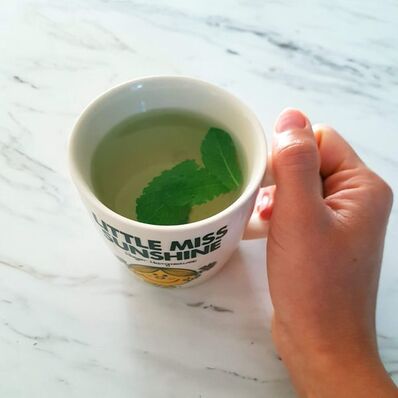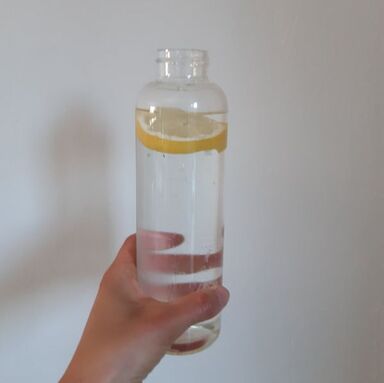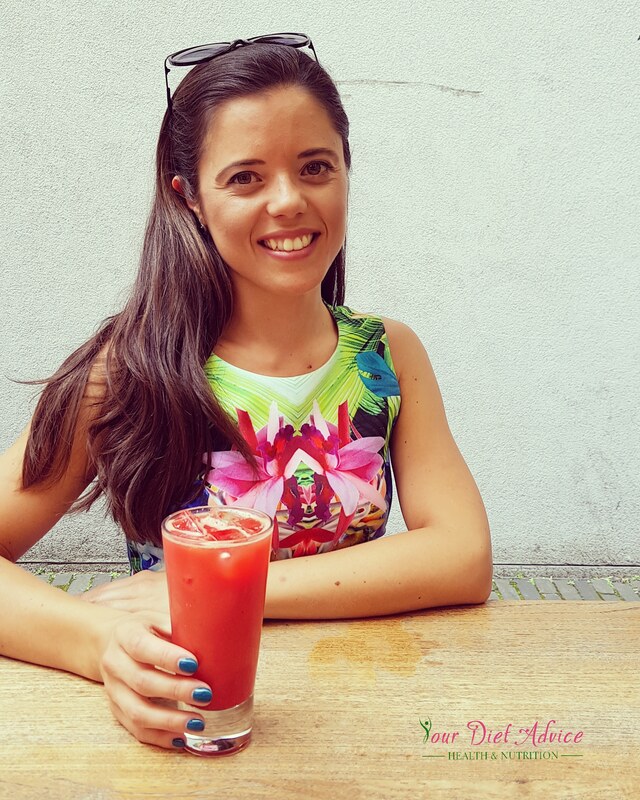|
Keeping a good hydration status is essential to the body to well function. In the short and long term e.g. for the prevention of constipation, kidney stones and urinary tract infections. Good hydration also can prevent other conditions e.g. chronic renal disease. How much should we be drinking? Man should drink 2 L of water a day and woman 1.6 L. If the weather gets hot or if you do physical activity, drink more. Tea, soup, milk, juices with no added sugar, even coffee (except the espresso) all counts for your daily water intake. How to drink more water? It’s a good idea to start your day with a glass of water, make it part of your routine. After that, carry a bottle of water with you if you are going out, or have a bottle of water always visible, it can be by your desk or bedside table. Somewhere always visible. So you remember to drink. There is also an app you can use to set up reminders to drink and to monitor your water intake. Try to drink regularly, small sips throughout the day. You can also try chilled water, flavoured water with no sugar, adding some mint, cucumber, fruit or sugar free squash. What happens if you don't drink enough? If you don’t consume enough water you will become dehydrated. The first thing you will notice is increased thirst and a dry sticky mouth. Other effects include tiredness, poor concentration, headache and dizziness. How to know if you are drinking enough water? The colour of urine is the best indicator; if you are drinking enough your urine should be a straw or pale yellow colour. Does it matter what kind of water or drinks? To an extent this is a matter of personal taste and preference. In the UK drinking plain tap water is a good way to get enough to drink. Chilling or filtering tap water are cheap ways of making it taste more pleasant. Bottled water has the same hydrating abilities as tap water. Tea and coffee provide water and can be a good way of keeping older adults well hydrated. However if you drink a lot of tea and coffee you need to be aware of the amount of caffeine you are consuming. This is particularly important for pregnant women. Regular fizzy and still drinks contain a lot of sugar and should only be drunk in small amounts. Fruit juices provide water and other nutrients but contain sugar so only have one small serving per day; this counts towards your 5-a-day. Alcohol may make the body pass more urine than usual and make you dehydrated. It’s a good idea to also drink low-sugar soft drinks or water when drinking alcohol. Can we drink water at mealtimes? Absolutely, drinking water at mealtimes can help with digestion. You should definitely drink a glass of water at mealtimes. Is water with lemon better than regular water?
Water with lemon provides a good flavour, and also vitamin C. It can be beneficial if it actually makes you drink more water. Apart from that, there isn't enough research highlighting the benefits of drinking lemon water. In conclusion Having regular drinks throughout the day will help you stay well hydrated especially when it is hot or you are exercising. Keep an eye on the colour of your urine; if it is dark you need to drink more. Children and the elderly are particularly vulnerable to dehydration and may need to be encouraged to drink more. Joana Jardim, Dietitian RD MSc Founder of Your Diet Advice
1 Comment
2/5/2022 11:08:38 am
Water is important for healthy digestion. The water helps break down the food you eat, allowing its nutrients to be absorbed by your body.
Reply
Leave a Reply. |
Categories
All
AuthorHi, I'm Joana, a Portuguese registered dietitian in the UK. I am passionate about helping others achieving their health goals. Archives
June 2024
|





 RSS Feed
RSS Feed